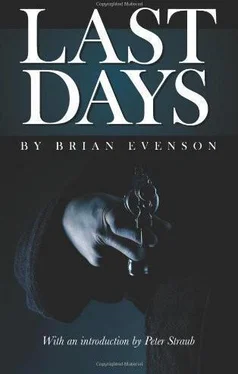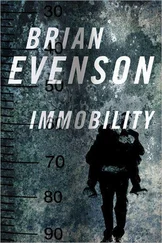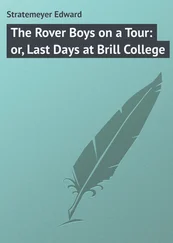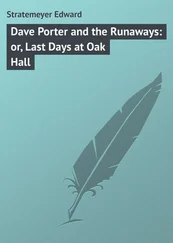"Thirteen," said Kline. He began eating. Ramse, he noticed, wasn't touching his food.
"Thirteen?" asked Ramse, looking stricken. "What do you mean?"
"He had me cut off something."
"Leg, toe, toe, toe, toe, toe, left arm, finger, finger, ear, eye, ear. What else?"
"Finger," said Kline.
"The whole finger?"
"Just the first joint," said Kline.
"That hardly counts as a thirteen," said Ramse, looking relieved.
"You're not eating," said Kline.
"No," said Ramse.
"You already ate?"
"I don't have any hands," said Ramse. "You'll have to feed me when you're done."
Kline nodded, began to eat more quickly. When he was done, he pulled Ramse's plate closer, dipped his spoon in, lifted the spoon to Ramse's mouth. Ramse positioned his mouth so that the spoon's handle fit snugly into the lip's tear. It was hard for Kline not to stare at it.
"Do you have a picture of Aline?" he asked.
Ramse shook his head. "No pictures," he said. "The man's a prophet."
"That doesn't mean you can't have a picture."
"We're not Catholics," said Ramse between mouthfuls. "Or Mormons. Besides, we're concentrating on his absence, not his presence, on what he's severed rather than what remains."
Kline nodded. He kept shoveling food onto the spoon, lifting it into Ramse's mouth. Not even the presence of an absence , he thought, but absence as absence proper. It shouldn't be called a twelve, but a minus twelve.
"Ramse," said Kline, once the food was gone. "How did you get involved?"
"Involved," asked Ramse. "I'm an eight, aren't I? They can't withhold everything from me."
"Not in the investigation," said Kline. "In the cult."
Ramse stared at him. "First of all, it's not a cult," he said. "Second, I can't tell you."
"That's what Gous said."
Ramse smiled. "Why do you want to know?"
"I don't know," said Kline. "Curious, I suppose."
"Just curious?"
"I don't know," said Kline. He ran the edge of his stump along the grain of the table. It felt so good he did it again.
"What did Borchert have to say?" Ramse asked.
"A great guy, Borchert."
"You shouldn't make fun."
"Who says I'm making fun? He told me not to talk about it."
"I'm an eight, aren't I? You can talk to me. You don't have to keep a secret from me."
Kline shook his head, smiled. "It's not secret, it's sacred," he said.
"You shouldn't make fun," Ramse said again. "You should tolerate other peoples' religious beliefs. Besides, I already know a few things about it."
"Oh?" said Kline. "Why don't you tell me what you know?"
"Tit for tat," said Ramse. He slashed his stump bluntly past his face. "My lips are sealed," he said. "Besides, I've come on an errand. I'm supposed to conduct you to the scene of the crime."
The crime scene was in the same building that Borchert had been in. Ramse tried to follow Kline up but the guard instead locked Ramse outside on the porch, led Kline up alone.
"What do you know about this?" Kline asked.
"About what?" the guard asked.
"About the crime."
"What crime?"
"The murder."
"What murder?"
Kline stopped asking. On the third floor they passed the first and second doors, stopped at the third. The guard gestured to it.
"I'll wait here," he said.
"You don't care to come in?" asked Kline.
The guard said nothing. "Whose room is this?" asked Kline. The guard said nothing. "Aline's room?" asked Kline. The guard still said nothing.
"You're not allowed to come in?"
"I'll be waiting," said the guard. "Right here."
Kline sighed. Opening the door, he went in.
The room looked much like Borchert's room: a simple bed, a chair, a bare floor, little more. On the floor near the bed was a large irregular bloodstain, perhaps three times the size of Kline's head. The wall nearby was spattered with blood as well. Someone had drawn a figure in chalk on the floor, though it took Kline a moment to realize that was what it was.
"Good Christ," he said.
It looked like a simple blotch at first, but in a moment he realized what he was seeing was the outline of an armless and legless torso. He got down on his knees and looked more closely at the chalk figure. It must have been drawn wrong, for the head didn't fit snugly into the pool of dried blood that had sprent out of it. He got up, brushed off his knees, went over to look at the nearest wall. Blood was fanned all along it but in no regular pattern, as if spattered from eight or ten different blows. No blood on the other walls. It was as if the killer had struck the limbless torso once and then had hauled it a few feet away to strike it again, and so on. A legless, armless man wouldn't be able to cover much ground while being stabbed, would he?
He had stared at the wall for quite some time before it struck him that something else was wrong. He didn't have to bend over to see the spatter. He knelt down again beside the chalk torso and measured it roughly with his arm. It was slightly shorter than the arm itself. The spatter should be quite a bit lower on the wall.
Maybe, he thought, Aline had been in a chair. But the only chair in the room had no bloodstains on it. Maybe, he thought, whoever killed Aline had done so while holding him in their arms, perhaps dancing or spinning as he stabbed. He could imagine the limbless torso stiff, rigid, struggling.
But that didn't strike him as quite right either. True, he had been trained to infiltrate; true, his experience with crime scenes was far less than most of his former colleagues. Perhaps the killer had struck upward each time, as if carrying a golf swing through? Perhaps that would account for the odd spatter and the decreased amount of blood on the lower part of the wall?
But why? he wondered. Why strike that way at all?
And what was the instrument? From the way the spatter was slung he would have guessed a knife, some kind of blade. Without seeing a photograph of the body it was difficult to be sure. It hardly seemed likely that the killer would attempt to use a knife as if it were a golf club. Something was wrong.
He regarded the chalk torso, the way the blood had pooled unconvincingly out of the chalk head. It had been drawn wrong somehow. He reached out to touch the surface of the pool of dried blood. It looked almost lacquered. It was slick in some places, cracking on the surface in others, darker and thicker in the center. The light from the ceiling shined off it in a kind of busted nimbus, the shape not unlike that of a broken jaw.
What could blood tell? he wondered. Where blood was could tell a lot. Could blood itself tell nothing?
He got out his keys and dug at the blood in the center of the stain. The top quarter-inch layer cracked away in bits, but underneath it merely separated. Right near the floor the blood was almost moist, like a dough.
How long had it been? he wondered. They had started calling him several weeks ago. At least that; it could have been longer: he had been confused enough not to know exactly how much time had gone by. Aline, then, must have been dead for at least three weeks, perhaps more than a month. There was no way blood would stay moist for that long. It would either dry out completely or it would begin to rot and stink. And why were there no flies?
He went out into the hall. The guard was waiting, standing as stiffly as he had been when Kline had gone into the room.
"Nobody was killed in that room," said Kline
"I don't know what you're talking about," said the guard.
"Whose room is it?"
The guard just looked at him.
"I need to see Borchert," said Kline. "Right now."
"The room, Mr. Kline?" said Borchert absently. "What room is that exactly?" He held his mutilated finger between them and scrutinized it, his eyes flashing back and forth between it and Kline. "Nice work, don't you think, Mr. Kline?"
Читать дальше












